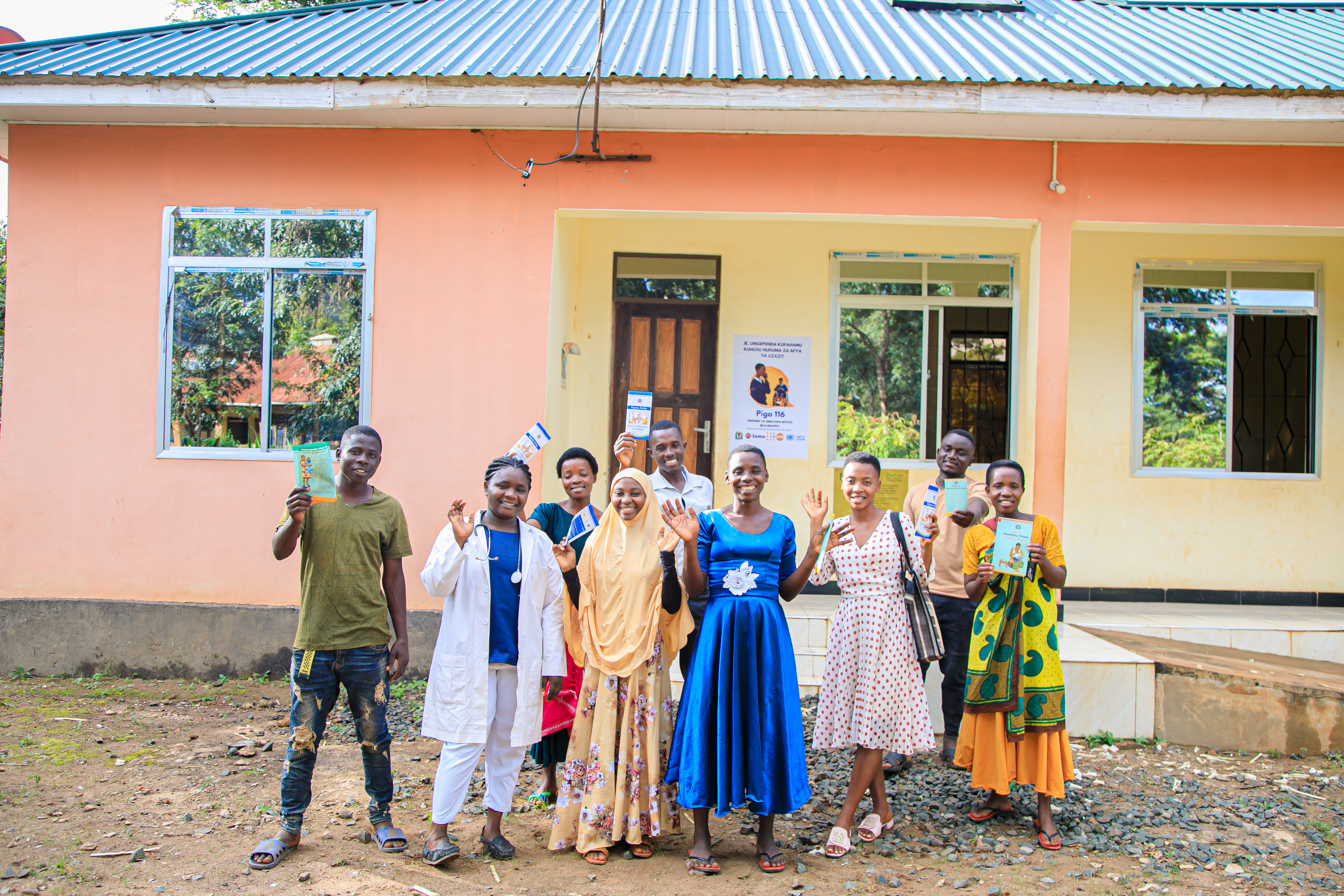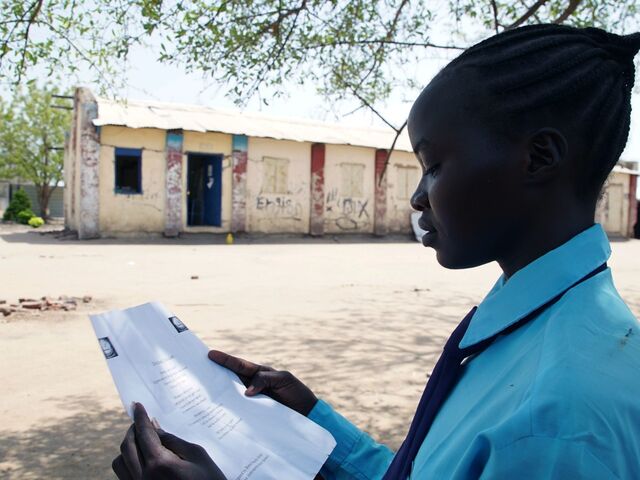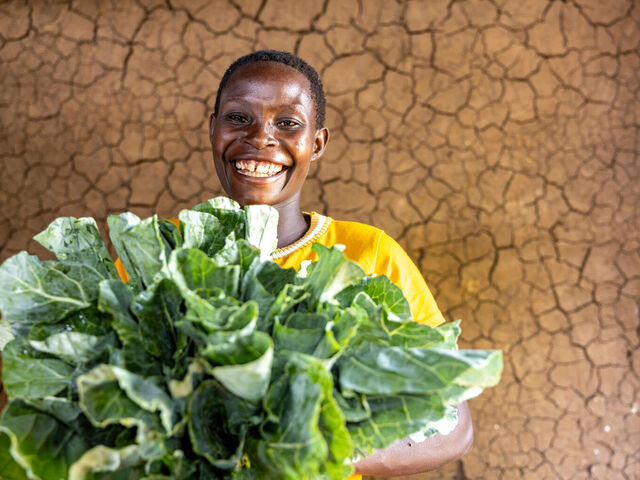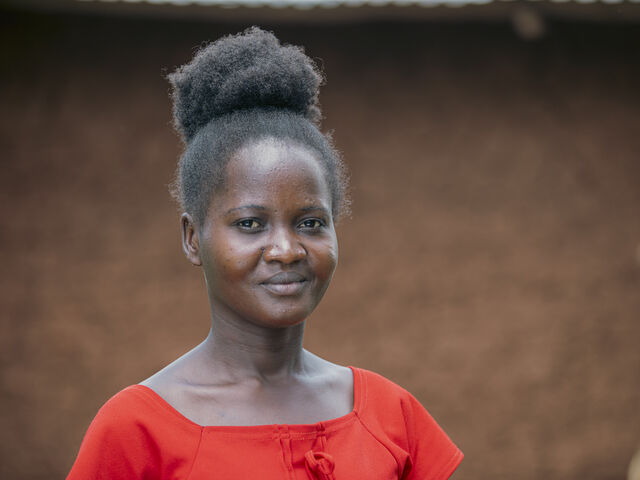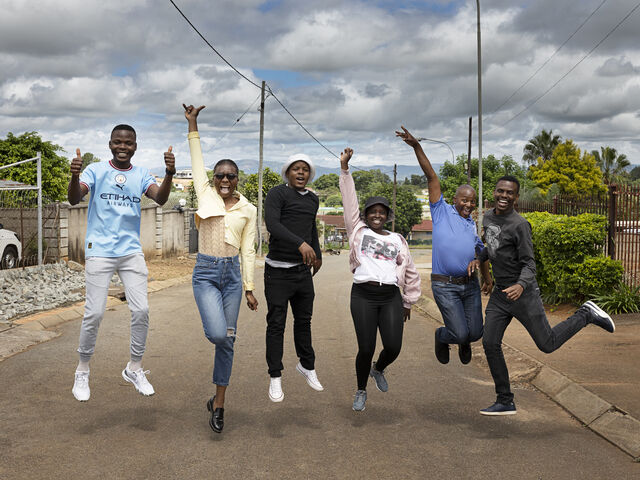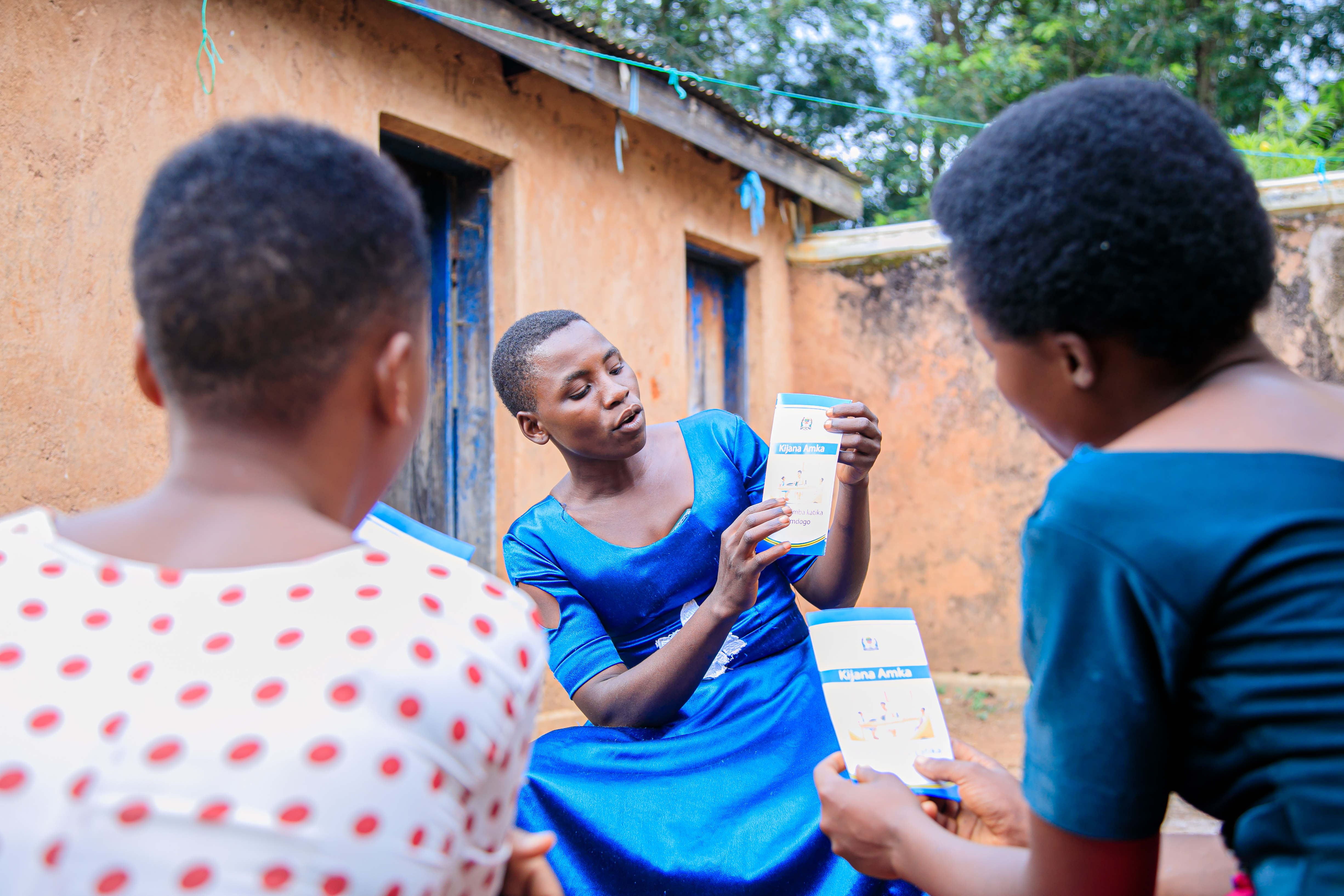
“When I got a girlfriend, she told me we couldn’t have sex without condoms. I tried to persuade her, but she insisted. So, I asked my friend, and he told me you could get condoms from the dispensary,” shares Azily.
In Tanzania, a powerful change is unfolding, and it is being driven by young people. They comprise more than half of the country’s population and are boldly rewriting their future by prioritizing their sexual and reproductive health and rights (SRHR).
Once held back by limited information, young men like Azily are helping to lead the charge, actively visiting more health centres to meet their sexual and reproductive health needs, and encouraging others to do the same. At the same time, health facilities are increasing services and support to address critical issues impacting young lives and their wellbeing, including unintended and early pregnancies, sexually transmitted infections, including HIV, and gender-based violence (GBV).
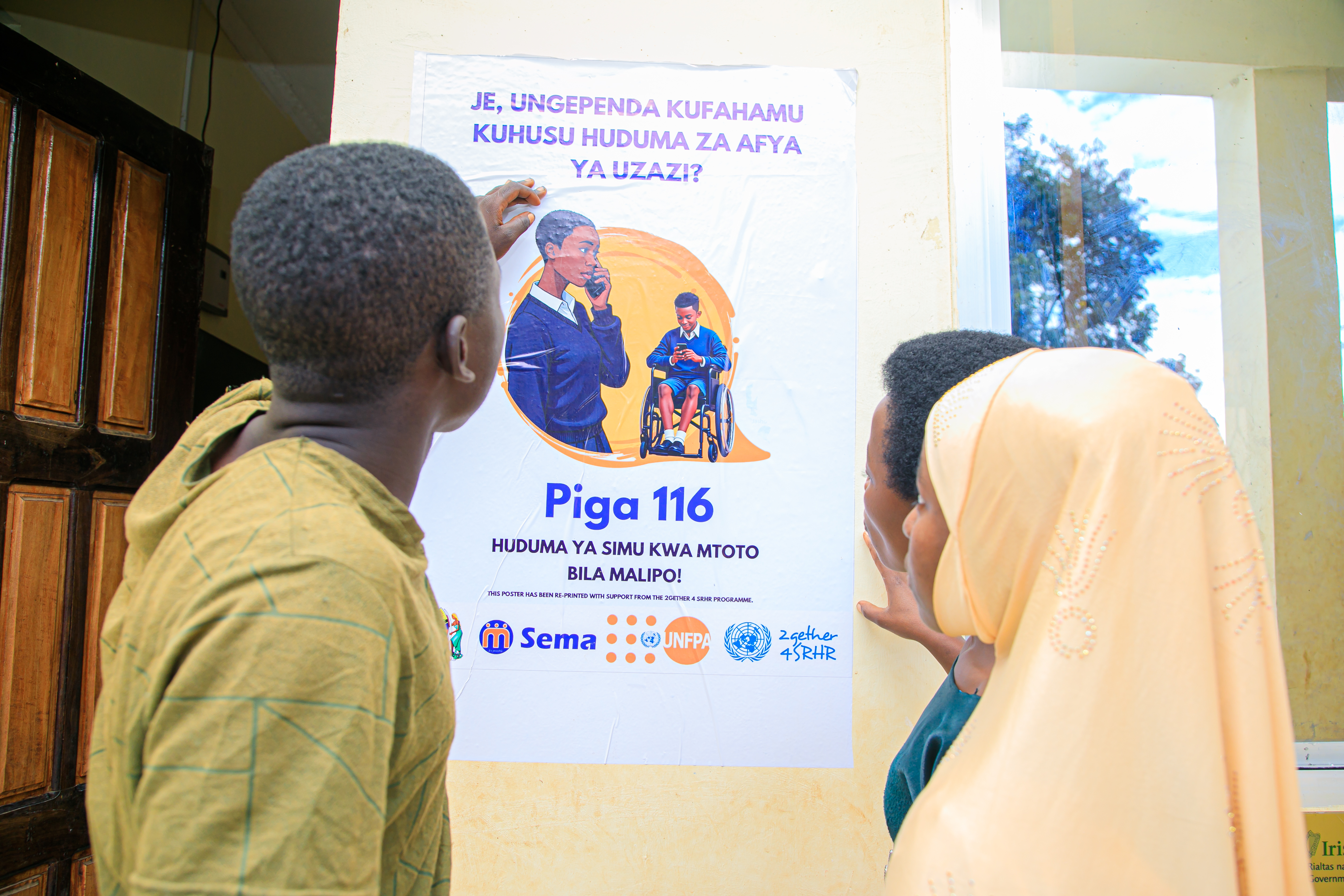
“The services I receive here include reproductive health education, [where they] encourage us to use condoms to prevent [sexually transmitted] diseases and to space births by using contraception,” highlights Azily. “I want to encourage other young people, hanging out at our bodaboda stops and where we play pool, to go to health centres to take advantage of the services being offered.”
In a country where 22% of adolescent girls have already begun childbearing, and where youth aged 15–24 account for a significant portion of new HIV infections, access to accurate sexual and reproductive health information is critical (TDHS 2022, THIS 2023).
Helping to address these challenges by advancing sexual and reproductive health and rights is the joint United Nations regional programme, 2gether 4 SRHR. Operational in Tanzania since 2021, the programme, supported by Sweden, has focused on actively empowering adolescents and young people to access and utilise quality SRHR, HIV, and GBV services and information.
Just last year, the programme collaborated with youth-led networks to educate thousands of young people on SRHR, with half of them later accessing health services.
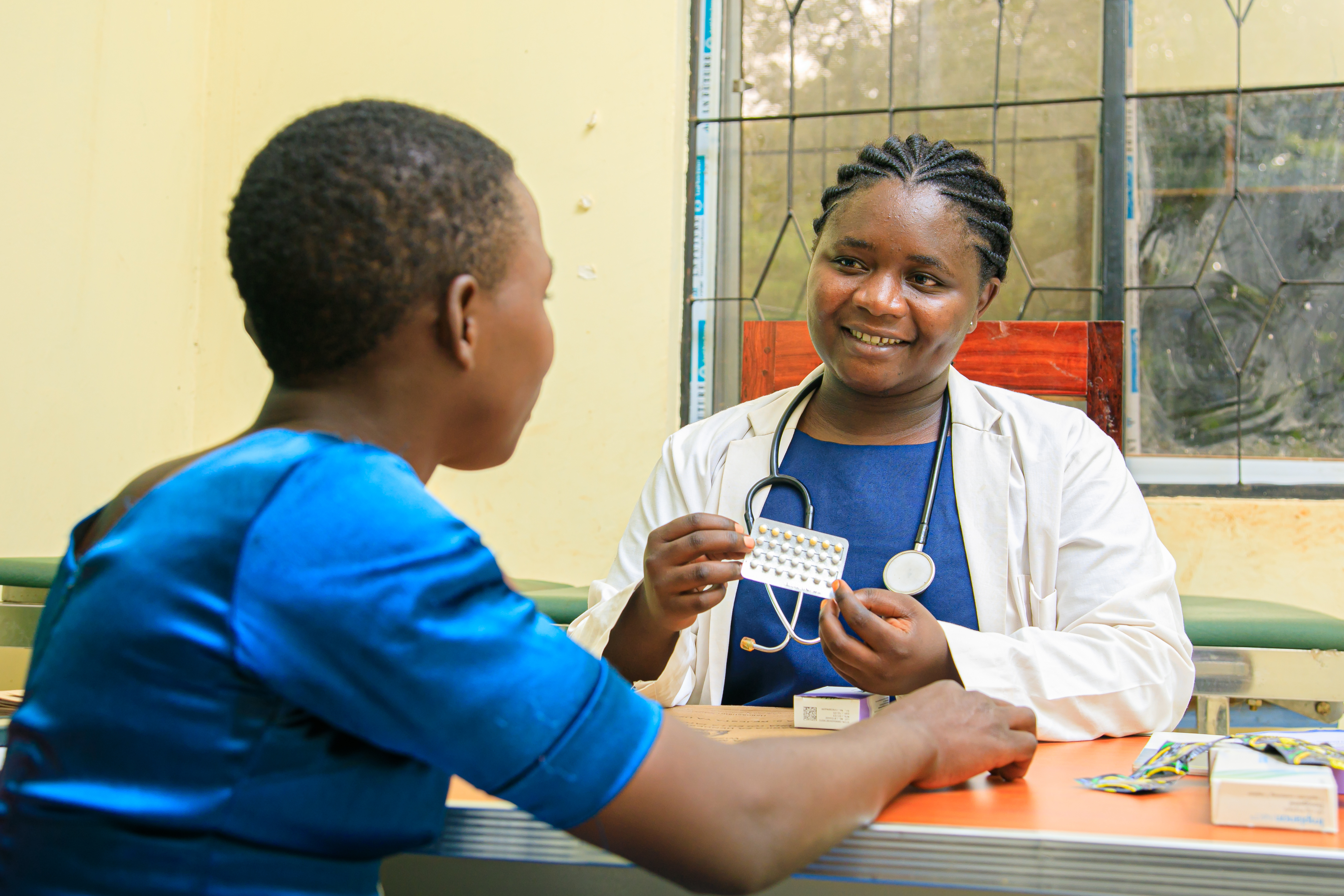
This notable shift can be attributed in part to healthcare workers, where midwives like Janeth are transforming health facilities into welcoming sanctuaries for young people. This work has also been complemented by young people and peer educators trained by the programme who visit popular youth hangouts like cinema halls, bodaboda spots, and churches in order to share vital knowledge and their own lived experiences on SRHR.
One such example is Yacobo, a peer educator, who was compelled to educate others after seeing the reluctance of young men to accompany their partners to health clinics and get tested, including when their partners were pregnant. Now, he openly discusses reproductive health, family planning, and GBV.
Through the support of 2gether 4 SRHR, young people like Isack are not just accessing more services; they are also reshaping social norms around reproductive health and gender equality.
As a young community member, Isack views health services as 'capital’. He visits youth-friendly health clinics to learn how to use medication and about using protection, so he can safeguard himself and others. He shares a simple call-to-action with his peers: keep an open mind and get tested to learn their HIV status.
Isack also supports ‘community-led monitoring’ initiatives, helping to gather and share peer feedback to identify barriers and advocate for youth-led solutions and integrated services that better meet their needs. Similarly, Lucy encourages her peers to visit health centers where they can access resources and support - enabling them to overcome barriers and ultimately follow their dreams. This motivation came after witnessing first-hand friends becoming pregnant and then later ‘abandoned’ - motivating her to also begin utilizing health services.
To commemorate International Youth Day, stories from Azily, Isack, and Lucy highlight that empowering young people with knowledge, choice, and timely access to services is foundational. The future is being built by youth today, who are making healthier and safer reproductive choices, driven by the shared belief that ‘health is capital’.
